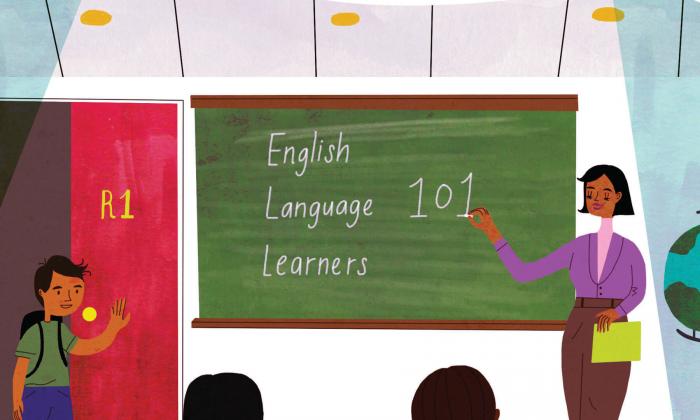
Pop Quiz: True or False?
- Failure to enroll a child who resides in the school's geographic boundaries due to the child's or parents’ immigration status could be interpreted as a violation of federal law.
TRUE. Title VI of the Civil Rights Act of 1964 prohibits discrimination in public schools on the basis of race, color or national origin. The U.S. Supreme Court also ruled in Plyler v. Doe (1982) that such discrimination violates the Equal Protection Clause of the 14th Amendment.
- Parents can “opt out” of having their child receive ELL services.
TRUE. Even if families opt out of ELL services, the student must still be assessed for proficiency annually. This refers to federal law; state laws may differ.
- Schools do not have to screen ELL students for advanced programs, such as Gifted/Talented, Advanced Placement and International Baccalaureate.
FALSE. Screenings must be inclusive and provide language accommodations.
- ELL students can’t be considered for eligibility in special education while they are receiving ELL services.
FALSE. A school cannot delay a special education evaluation because a student is receiving ELL instruction.
- Once a student leaves an ELL program, they do not have to be monitored.
FALSE. All students must be monitored for two years after exiting an ELL program.
Vocabulary

Here are words and acronyms you should know when working with English language learners.
Characterizing Students
English language learner (ELL): A student who is in the process of acquiring English language skills; also referred to as an English learner (EL). The U.S. Department of Education specifies ELL as the most appropriate term because it privileges accomplishments over deficits.
Limited English proficient (LEP): A federal term referring to a person whose primary language is other than English and who has limited English proficiency in one of the four domains of language proficiency—speaking, listening, reading and writing. This term is commonly used to describe non-English-speaking parents and families of students. Many social justice educators do not use this term because it characterizes students and their families based on a deficit rather than a strength.
Other Terms Commonly Used in Schools
Educators tell us that these are terms to pay attention to:
Culturally and linguistically diverse students: Often used to describe a base of students in a school or district who may or may not need ELL services; characterizes multilingualism as an asset.
Language-minority students: Describes students who speak a language other than the majority language at their school but is often used to refer to students who do not speak English, taking on a meaning that devalues multilingualism.
Students of English for speakers of other languages (ESOL): Predates and is commonly interchanged with ELL but is often used to “other” ELL students.
Students of English as a second language (ESL): Considered outdated, as it downplays the value of multilingualism.
A Note About Title VI of the Civil Rights Act of 1964
The protection of national origin requires education departments and school districts to take action to remove language barriers for ELL students and their families. Title VI also requires districts to respond to peer-to-peer bullying based on race, color or national origin.
Appropriate Terms Concerning Legal Status
Unaccompanied minor or unaccompanied child: A child under 18 who immigrates to and arrives in the United States without parents or guardians. Many unaccompanied minors arrive looking for family members already present in the United States. Many are also released from immigrant detention facilities and supervised by the U.S. Department of Health & Human Services’ Office of Refugee Resettlement.
Undocumented: Preferred term to describe foreign nationals who are residing in the United States without legal status.
Inappropriate, Pejorative Terminology
- “Illegal” and/or “aliens”
- “Anchor babies”
- “Parachute kids”
Federal Laws Protecting ELL Students
In addition to the Civil Rights Act of 1964 and Plyler v. Doe, the federal laws below protect ELL students in our schools.
The Equal Educational Opportunities Act (EEOA) of 1974 prohibits discrimination against students. It also requires school districts and states’ departments of education to take action to ensure equal participation for everyone, including removing language barriers for ELL students.
The Every Student Succeeds Act (ESSA) of 2015 authorizes the U.S. Department of Education to award grants to state education departments, which may issue them as subgrants to K–12 school districts. The subgrants are intended to go toward improving ELL students’ instruction and abilities to meet state academic content and achievement standards. By accepting federal funds, districts are required to provide language accommodations to non-English-speaking families.